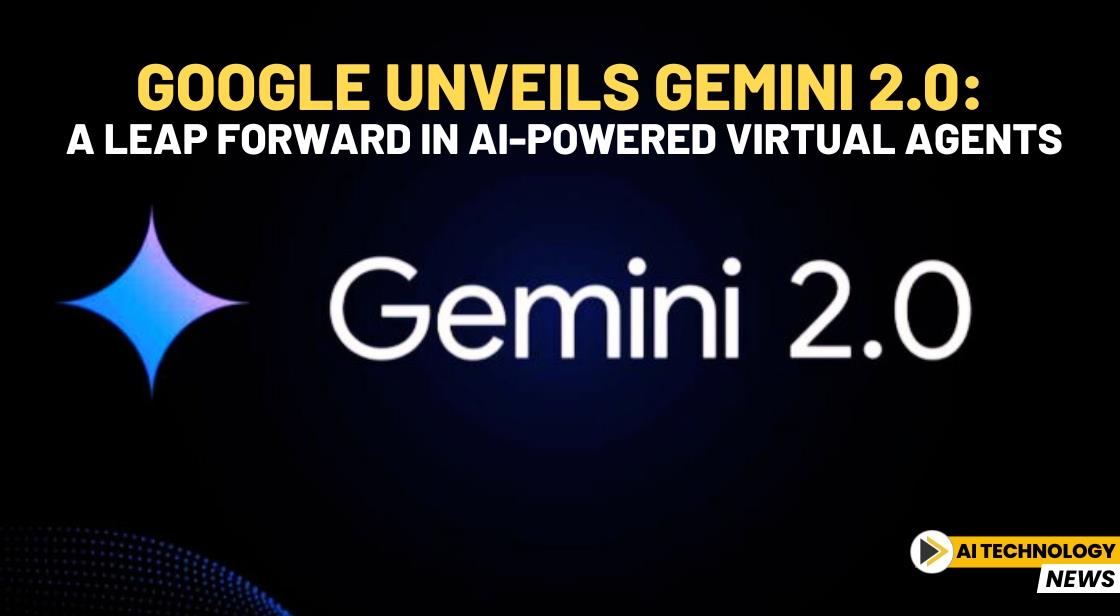Google Unveils Gemini 2.0: A Leap Forward in AI-Powered Virtual Agents

News Synopsis
In a major development in artificial intelligence, Google introduced Gemini 2.0, the latest version of its flagship AI model, on December 11. Designed to power the next generation of virtual agents, Gemini 2.0 represents a significant leap in AI innovation as the tech race between industry giants intensifies.
The Gemini 2.0 model brings groundbreaking advancements, including the ability to generate images and audio natively alongside text. Furthermore, the AI can seamlessly integrate with tools such as Google Search and Maps, enhancing its utility across diverse applications.
Sundar Pichai on Gemini 2.0’s Evolution
"If Gemini 1.0 was about organizing and understanding information, Gemini 2.0 is about making it much more useful," stated Google CEO Sundar Pichai in a blog post. He highlighted that the advancements in multimodal capabilities—such as native audio and image generation—and tool usage pave the way for developing universal AI assistants.
Pichai emphasized that these innovations will allow AI to think ahead, understand the world more comprehensively, and execute tasks autonomously under user supervision.
Gemini’s Journey and Technical Advancements
The Gemini family of AI models debuted in December 2022 as the first major release following the integration of Google’s AI research divisions, DeepMind and Google Brain, into a unified team. Led by DeepMind CEO Demis Hassabis, this collaboration aimed to revolutionize AI’s multimodal potential.
Over the last year, Google has invested heavily in developing "agentic models" capable of reasoning multiple steps ahead and taking actions based on user input.
Gemini 2.0 Flash, an experimental variant, is now available via the Gemini API in Google AI Studio and Vertex AI. This version introduces multimodal capabilities such as customizable text-to-speech (TTS) multilingual audio and natively generated images, setting it apart from its predecessor, Gemini 1.5 Flash.
However, full capabilities like text-to-speech and image generation are currently accessible only to early-access partners, with broader availability scheduled for January.
Integration Across Google Ecosystem
Google plans to integrate Gemini 2.0 across its suite of products in the coming months. Consumers can access a chat-optimized version of Gemini 2.0 through the Gemini AI chatbot via desktop and mobile web, with app support expected shortly.
A new feature, Deep Research, enhances the AI’s reasoning capabilities, enabling it to act as a research assistant by compiling reports on complex topics. This feature will be available to Gemini Advanced users, the paid tier of the chatbot.
Additionally, Google is testing Gemini 2.0’s advanced reasoning capabilities within AI Overviews, the generative AI-powered search experience, to address complex topics, multimodal queries, and coding challenges.
Futuristic Research Prototypes
Google is leveraging Gemini 2.0 for new prototypes such as:
-
Project Astra: A universal AI assistant in its early stages.
-
Project Mariner: An experimental extension for Chrome capable of taking actions.
-
Jules: An AI-powered agent designed for coding tasks.
The trusted tester program for these projects has been expanded, with select participants testing Project Astra on prototype glasses.
Focus on Safety and Responsibility
Pichai reiterated Google's commitment to ensuring the safety and responsible deployment of AI innovations. "This is why we’re taking an exploratory and gradual approach to development, including working with trusted testers," he noted.
Gemini 2.0: Pioneering the Future of AI
Google's multimodal advancements with Gemini 2.0 underscore its vision of transforming virtual agents into universal assistants capable of real-time reasoning and action. By integrating cutting-edge capabilities like audio, image generation, and tool usage, Google solidifies its position at the forefront of AI innovation.
Conclusion
The unveiling of Gemini 2.0 marks a significant milestone in AI development, showcasing Google's ability to innovate and expand AI capabilities. With multimodal outputs and integrated tool use, Gemini 2.0 is set to redefine the landscape of virtual agents.
As Google rolls out these advancements across its ecosystem, the potential for AI to enhance user experiences and productivity reaches new heights. By prioritizing safety and gradual implementation, Google ensures these innovations will shape a responsible and transformative AI future.
You May Like









